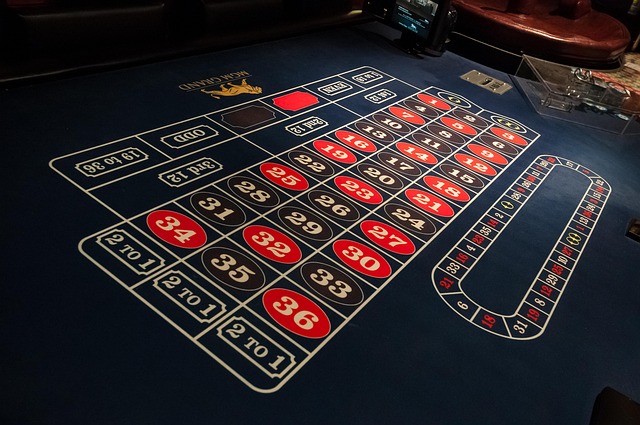Roulette is a game of chance with various bet types, where understanding rules, odds, and house edges is crucial for developing a Roulette Strategy. The Martingale System and Fibonacci Strategy are popular methods, each carrying risks and rewards. Strategic betting, leveraging probability, and using proven systems can enhance win chances, but no method guarantees success.
Unleash your inner gambler and explore the captivating world of roulette! This guide is your compass through the table, offering a comprehensive look at winning strategies. From grasping the basic rules and odds to uncovering popular betting techniques, we demystify each step. Then, delve into advanced tactics that could enhance your gameplay, providing an edge in this classic casino game. Discover how to navigate the roulette wheel with confidence and potentially increase your winnings.
- Understanding Roulette Rules and Odds
- Popular Roulette Betting Strategies
- Advanced Techniques for Better Wins
Understanding Roulette Rules and Odds

Roulette is a game of chance where players bet on a number, color, or combination that they predict will be where the ball lands after spinning. Understanding the rules and odds is crucial when developing an effective roulette strategy. Each spin is independent, meaning past results have no influence on future outcomes, which makes it a truly random game. The most common types of bets include straight-up (betting on a single number), split (betting on two adjacent numbers), street (betting on three numbers in a row), and corner (betting on four numbers that form a square).
The house edge varies depending on the roulette variant, with American roulette having a higher edge of approximately 5.26% due to an extra zero pocket compared to European roulette at around 2.7%. Knowing these odds and probabilities is essential for any roulette strategy. Players can reduce their disadvantage by choosing bets with higher odds of winning, like straight-up or corner bets, and avoiding bets that cover a larger number of numbers, which have lower returns but higher house edge.
Popular Roulette Betting Strategies

Many players approach roulette with the hope of finding a winning strategy, and there are indeed several popular betting methods that have gained traction over the years. One such strategy is the Martingale System, where bettors double their stakes after each loss, aiming to recoup all previous losses with the next win. This can be appealing as it promises recovery from initial setbacks.
Another widely known approach is the Fibonacci Strategy, inspired by the Fibonacci sequence in mathematics. Players bet on numbers based on a series of sums, starting with the first two numbers (0 and 1) and continuing the sequence. This method encourages responsible betting, as it allows for adjustments after each spin rather than employing aggressive doubling like the Martingale System.
Advanced Techniques for Better Wins

In the realm of roulette strategy, advanced techniques can significantly enhance your chances of securing better wins. One such method involves understanding and leveraging the concept of ‘probability’. By carefully observing the wheel’s behavior and keeping track of number outcomes, players can identify patterns that hint at potential hot or cold numbers. This isn’t about gambling or luck; it’s a calculated approach rooted in statistical analysis.
Another effective Roulette Strategy is the strategic placement of bets. Instead of betting on random numbers, consider employing systems like the Martingale or Fibonacci strategies. These methods involve specific bet placements based on previous outcomes, aiming to maximize wins while minimizing losses. While these techniques don’t guarantee success, they offer structured approaches that can help players make more informed decisions at the roulette table.
Roulette is a captivating game that offers both excitement and challenges. By understanding the basic rules and odds, exploring popular betting strategies, and delving into advanced techniques, players can enhance their roulette strategy. Combining these elements allows for more informed decisions and potentially better win outcomes, ensuring an enjoyable and rewarding experience at the table.






